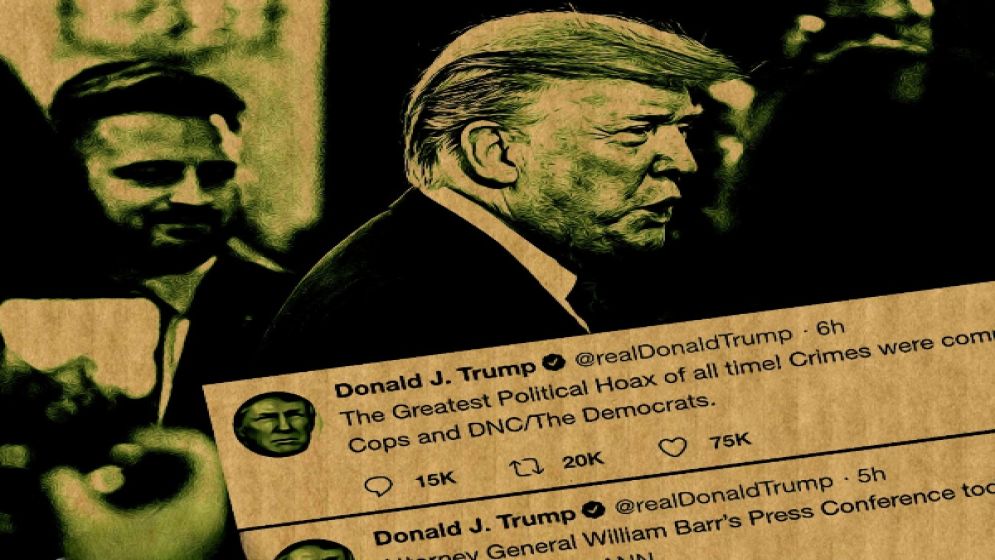
Just before the U.S. national election, a tweet from former president and current Republican nominee Donald Trump—considered “misguided” and “misrepresentative”—has stirred significant attention in far-off Bangladesh.
Like many around the globe, Bangladesh closely monitors anything related to the U.S. and its prominent politicians, as understanding Washington's perspective—given its status as the world’s sole superpower—is crucial.
It's important to note that Trump does not represent the whole of Washington, and his personal opinions or tweets do not necessarily reflect U.S. foreign policy, which is deeply institutionalized and not easily swayed by an individual’s viewpoint.
However, the thoughts and actions of a U.S. presidential nominee do carry weight, as they send signals to the people of the affected country, potentially sparking speculation and intense discussion.
This is particularly relevant as Bangladesh has recently emerged from a turbulent period following the ousting of its long-time dictator, Sheikh Hasina.
Her regime's remnants are actively involved in shaping global narratives using the wealth they amassed over the past 15 years.
Notably, the Sweden-based investigative news outlet Netra News reported that Hasina's son, Sajeeb Wazed Joy, has hired a lobbying firm in Washington to advocate for his mother’s ousted government and to undermine Dr. Muhammad Yunus’s interim administration.
Many now view Trump’s sudden tweet as a reflection of Joy or other Awami lobbyists' relentless efforts to discredit the actions of the Yunus administration in post-revolutionary Bangladesh.
Awami supporters have taken to social media to express their delight, promoting the narrative that if Trump wins, the White House will withdraw support for the Yunus government. However, this perspective is quite misleading.
This belief seems to stem from those in Bangladesh who think the U.S. was behind the July-August uprising or those who assumed the U.S. could influence the elections in January.
Such thinking, while outdated, suggests a tendency to attribute every event to American intervention. The reality is that America's global influence is waning. Beyond desire, it simply lacks the capacity to orchestrate the political changes it once could.
However, that’s not the main issue here. The key question is what prompted Trump to make such a tweet at this moment.
The most straightforward explanation might be that someone made a significant donation to his campaign and requested the tweet in return. That’s certainly plausible.
Yet, Trump likely had additional motivations; he probably recognized an opportunity to rally support for what he needs most right now—votes.
-672707198de03.png)
Dissecting the reasons behind Trump’s
tweet
Let’s first examine the key messages conveyed in Trump’s tweet.
In it, he condemned the violence against Hindu, Christian, and other religious minorities in Bangladesh, asserting that such incidents would not happen if he were President.
He also claimed that he would strengthen America’s partnership with his friend Narendra Modi and India if elected.
The crux of the matter is that Trump’s rival, Kamala Harris, is of Indian descent, leading him to believe that Indian Americans will largely support her.
Consequently, he is strategizing on how to win over some Indian votes. He understands that to appeal to Indian Hindus, he must leverage religious sentiments.
Given that many Indians harbor strong animosity toward Bangladesh—second only to Pakistan—he has invoked the country in his statements.
Trump is aware of how Narendra Modi has effectively used religion to govern India over the past decade, making this approach his best bet to attract Indian votes away from Harris.
One might ask about the presence of Muslim voters in the U.S. Indeed, there are many, but Trump is not particularly focused on winning their support.
A portion of the Muslim electorate has already shifted away from the Democrats, particularly due to issues surrounding Palestine.
Since Kamala Harris is of Indian heritage, a notable number of voters from Pakistan and Bangladesh may also lean toward Trump. The primary challenge lies with Indian voters, but Trump knows how to address their concerns.
For Trump, religion is crucial in winning the support of religiously inclined Indians. By tweeting about the alleged “mistreatment” of Hindus in Bangladesh, he not only found a convenient context but also an opportunity to craft a complex narrative aimed at appealing to Hindu voters in the U.S.
Many in Bangladesh may overlook these nuances in Trump’s tweet.
—
CM Kajwal is a U.S based Bangladeshi journalist and commentator.

